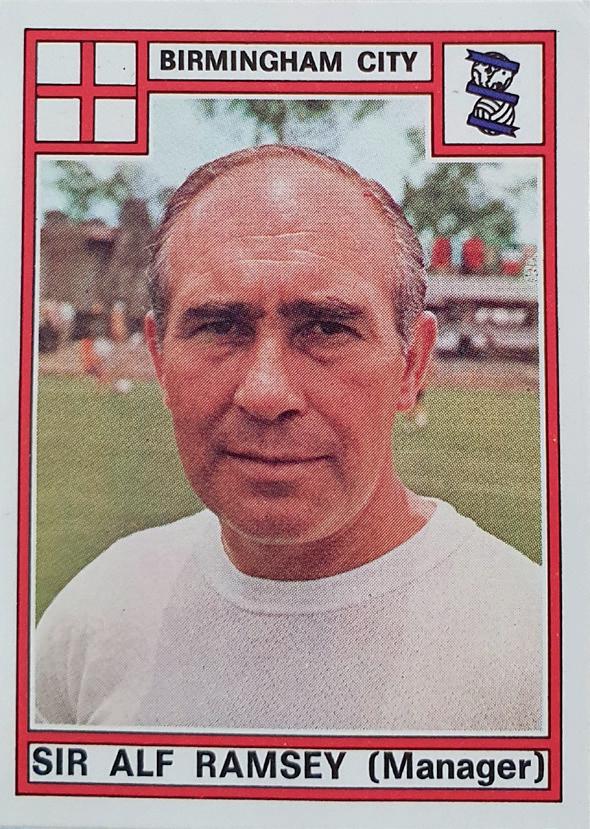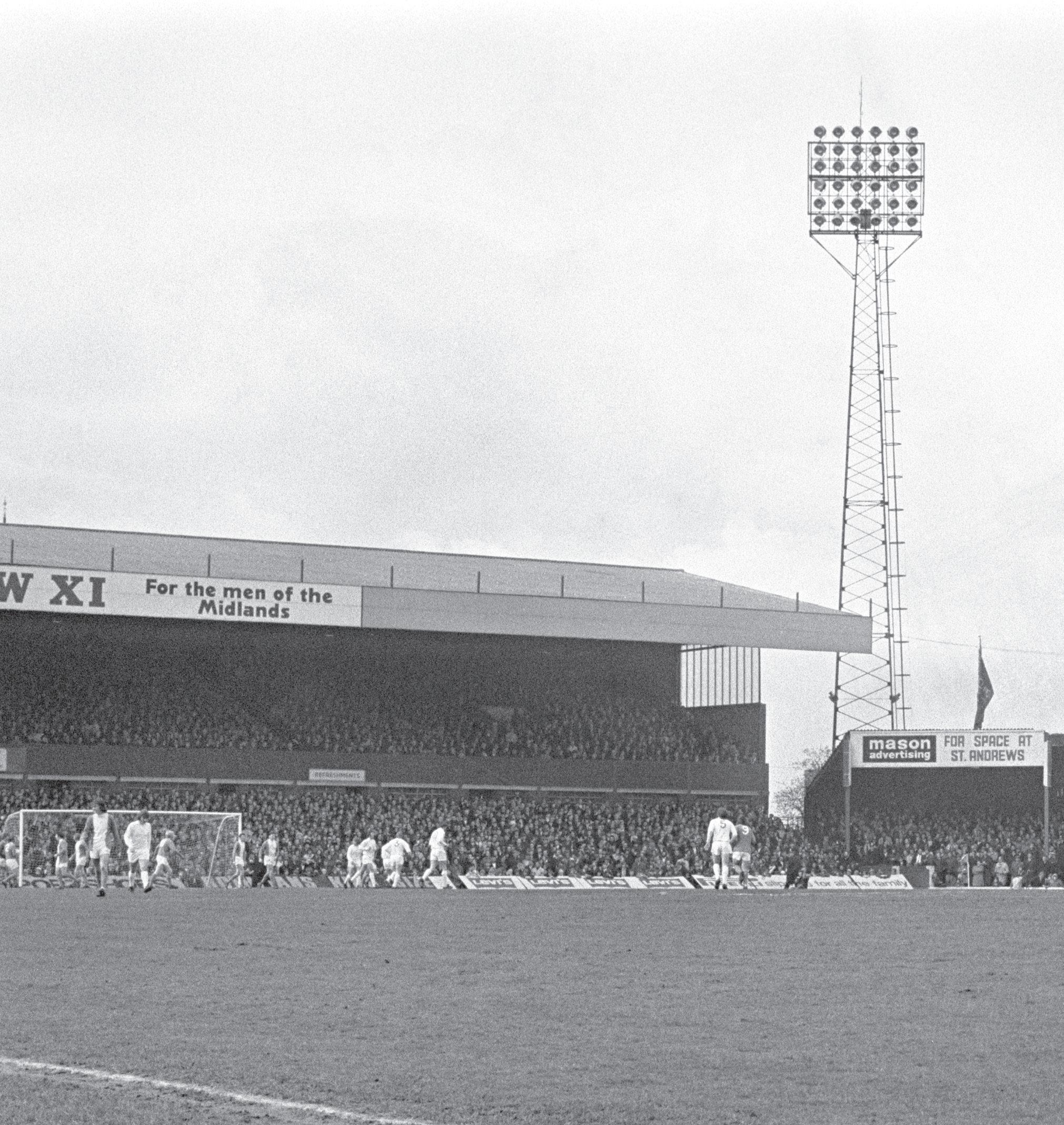
7 minute read
panini football stickers 18 72@50
a nostalgic journey panini football stickers
For Birmingham fans of a certain vintage, a doublepage spread in a Panini sticker album was a given as part of their season cheering on Blues.
Advertisement
The Italian collectables business made their mainstream entry into the UK during the late 1970s, at which stage City was an established member of the top-flight.
Panini’s first album covering the British domestic game featured an unlikely presence in the Birmingham manager’s position – Alf Ramsey. The former England boss may have only been in the hotseat for a few months but it coincided with the January 1978 release of ‘Football 78’.
Among the playing squad were several who enjoyed far longer careers at St Andrews such as Gary Pendrey, Joe Gallagher, Malcolm Page and Trevor Francis. All of the quartet also popped up in a blue shirt in ‘Football 79’ but the last named moved to Nottingham Forest soon after Shoot! had given away the album plus free packets of stickers to get collectors off and running.
While Francis went on to score the winner in that season’s European Cup Final, it was a less auspicious end to the season for Birmingham, who dropped into Division Two. Blues returned to Division One at the first attempt, however, starting another four-year tenure as a two-page Panini sticker album component. Archie Gemmill, Frank Worthington, Colin Todd and Mick Harford were among the biggest names to crop up in a Blues shirt during this time.

An anomaly occurred in ‘Football 84’ when midfielder Martin Kuhl was purported to have made his first appearance on a Panini sticker – except the image was actually of fellow youngster Wayne Mumford. Following relegation that season and another swift – albeit fleeting - return to Division One, Kuhl finally got his rightful sticker in ‘Football 86’. Also taking his Panini bow in that album was goalkeeper David Seaman, in what would turn out to be his only outing in a Birmingham shirt but by no means his last in sticker form.

If Blues need a further incentive to get back to the promised land, the acquisition of the Premier League collectables licence by Panini from the 2019-20 season means it could be just like old times for long-standing fans and a new experience of ‘got got need’ for younger followers.
Greg Lansdowne is the author of ‘Panini Football Stickers – The Official Celebration’, published by Bloomsbury and now available to purchase online and in major bookstores.








GET THE APP










5072 @

by ROB MASON
Half a century on from the glorious 1971/72 season when Freddie Goodwin’s Blues dramatically clinched promotion to the top flight having also reached the FA Cup semi-finals, we turn the Blues News spotlight on recalling one of the finest seasons in Blues’ post-war history.
IN ASSOCIATION WITH THE BIRMINGHAM CITY FORMER PLAYERS ASSOCIATION
New Year’s Day 1972 saw Bluenoses head to Ashton Gate to face an out of form Bristol City. The Robins had not scored in their previous four games and were without a win in nine. Despite that rotten run 11th placed Bristol City were still the division’s second top home scorers at this point, with 24 goals from 12 games, one fewer than second top Millwall.
Birmingham in contrast, despite being fifth were one of only two teams without an away win – the other being bottom of the pile Watford who had mustered a solitary point from 11 road trips: oddly enough at league leaders Norwich. This is football sometimes and perhaps it was one of those quirks of the game that saw Bristol’s poor run come to an end at Birmingham’s expense.
Former Wolves man John Galley got the only goal of the game in the first-half of a tight encounter watched by a crowd more than 25% up on Bristol’s Boxing Day visit of Burnley as Bluesnoses boosted the gate. The game marked the final appearance of the season for Phil Summerhill. He had been a regular in the early weeks of the season but had not played since October before coming into the side for Gordon Taylor. Perhaps more importantly goalkeeper Dave Latchford broke a finger in the game and would miss seven games including a couple of cup ties.

The result enabled Bristol City to climb into the top 10 as the highest placed of a quartet of clubs on 24 points but after a fifth away loss of the campaign Blues dropped to sixth – like the Robins being the highest placed of four teams. With just two teams to go up, no playoffs and still two points for a win, Freddie Goodwin’s Blues were 10 points behind top of the table Norwich City and six adrift of second placed Millwall whose next game was scheduled to be against third placed Queens Park Rangers.

There was an awful lot of hard work ahead. It may not have seemed like it at the time as fans travelled home from Bristol, but the first half of 1972 was to prove such a golden period that there would be just one more defeat – and that would come in the semi-final of the FA Cup!
TEAMS BRISTOL CITY 1: Gibson, Wimshurst, Drysdale, Wilson, Bruton, Merrick, Tainton, Spiring, Galley, Sweeney, Gow. BLUES 0: Latchford D., Carroll, Pendrey, Page, Hynd, Harland, Campbell, Francis, Latchford B., Hatton, Summerhill. Attendance: 17,457

ELSEWHERE IN FOOTBALL
New Year’s Day saw Arsenal’s double winning captain Frank McLintock awarded the MBE. In 1971, the Gunners had become only the second team in the twentieth century to win the league and the FA Cup in the same season.
30 seconds into the football fixtures of 1972, Blackpool’s Dave Lennard scored the calendar year’s first goal - struggling Watford being the team on the receiving end. The second and third days of the year saw a group of English managers put forward the idea of a Great Britain side while Europe’s first all-weather pitch was being opened in Islington.

CLASS OF 71/72
TREVOR FRANCIS British football’s first £1 million player earned that price tag through his performances in the blue of Birmingham. He did not turn 18 until near the end of the 1971-72 season but scored 12 goals in the promotion campaign plus another goal at the start of the FA Cup run.
Francis stayed with Birmingham until 1979, scoring 133 goals in 329 games before his big money move to Nottingham Forest where he swiftly started repaying his fee with the only goal of the 1979 European Cup final.
There were also 52 England caps and 12 international goals. In total, Francis scored 282 goals in 783 games in a career that took in Detroit Express, Manchester City, Sampdoria, Atalanta, Rangers, QPR, Wollongong City and Sheffield Wednesday. He returned to St. Andrew’s as manager between 1996 and 2001 and also took charge of QPR, Sheffield Wednesday and Crystal Palace.
One of the quickest players ever to play the game, Francis played more games and scored more goals for Birmingham than any of his other clubs.

HERE’S A ST AT I BET YOU DIDN’T KN W






